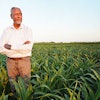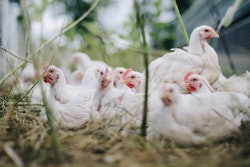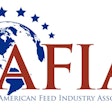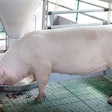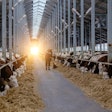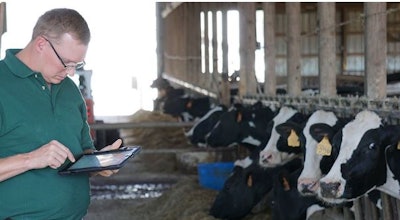
Cargill has introducedFeeding Intelligence, a new platform aimed at helping animal farmers navigate the changing food production landscape.
“Today’s farmers face countless challenges, from keeping up with a rapidly changing industry to navigating the demands of consumers around the way animals are raised,” says David Webster, president of Cargill’s Animal Nutrition & Health business. “They are the heroes who nourish the growing world. But being a hero is a difficult job. That’s why Cargill is committed to supporting those who feed the world, equipping them with the resources, tools and solutions necessary to raise animals more sustainability, more responsibly— more intelligently.”
Feeding Intelligence provides resources for farmers on the latest intelligent animal production practices aimed at helping them improve their operations — across all species.
Resources, support and stories of commitment and care are featured on www.feedingintelligence.com. Farmers can find information on a variety of topics including technological advancement, animal health and well-being, performance, sustainability and much more.
Cargill customer and owner of U.S. dairy operation Coldstream Farms, Galen Smith, often feels the pressures of the changing industry. Smith recognizes the need to invest in technology and sustainability, and to constantly innovate to remain relevant for the future — something he’s done to great success on his farm.
“How do we stay relevant with all these pressures that are put upon us? I spend a lot of time researching and finding newer technologies and opportunities for the future,” says Smith. “New technology has allowed us to grow and get an economy of scale that this environment continues to demand.”
ThroughFeeding Intelligence, Cargill is opening a new front in the effort to help animal farmers succeed. For over a century, Cargill has been a partner for farmers. The introduction of Feeding Intelligence is both recognition of the tough road farmers face and a renewed commitment to helping the company’s customers succeed.
“Cargill employees work hard each day to build trusted partnerships with farmers around the world,” Webster adds. “Both consumers and farmers want safe, nutritious food produced in a sustainable manner. This goal is achievable and is a priority for Cargill. We champion the world’s farmers, supporting their quest for intelligent production practices that optimize animal health and well-being, providing consultative nutritional science expertise and advocating for these heroes, day in and day out.”
A recent Cargill study found that 55% of consumers think farmers should care most about providing safe, healthy, affordable and abundant food. Other noted responsibilities for farmers included sustainability, animal well-being and providing for their employees and communities. These demands from consumers—who have never been more interested in their food yet are so far removed from the farm—are in direct alignment with farmer goals. Yet there remains a tension between both parties.
As a major entity in the food value chain, Cargill has a unique perspective on the complex challenges from both the farmer and consumer point of view. This vantage point also uniquely positions Cargill to support productive conversations and incite positive change.
“嘉吉公司致力于推进农民的经营管理ions in a way that aligns with consumer needs — helping farmers become more sustainable, more innovative and more profitable so the cycle can continue,” noted Webster. “This isn’t possible without the millions of everyday heroes, our world’s farmers, on a quest to produce the very food consumers demand.”


